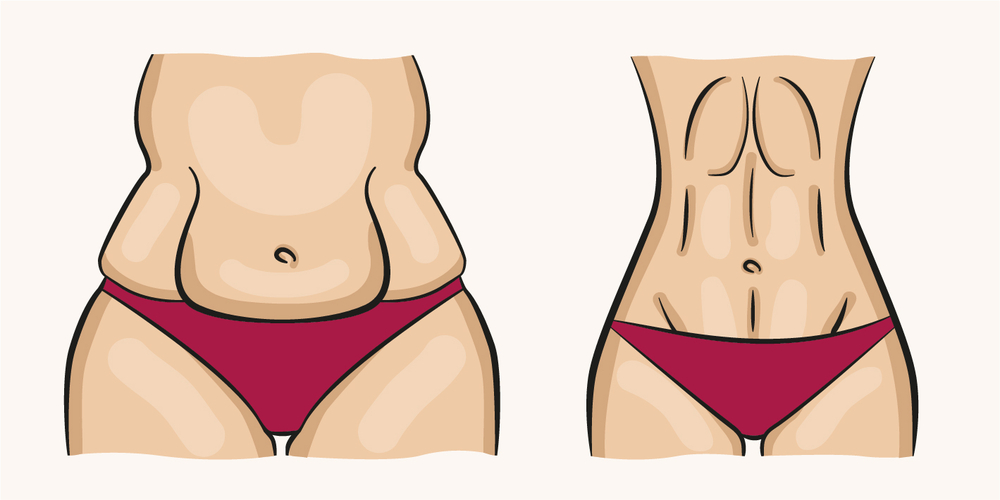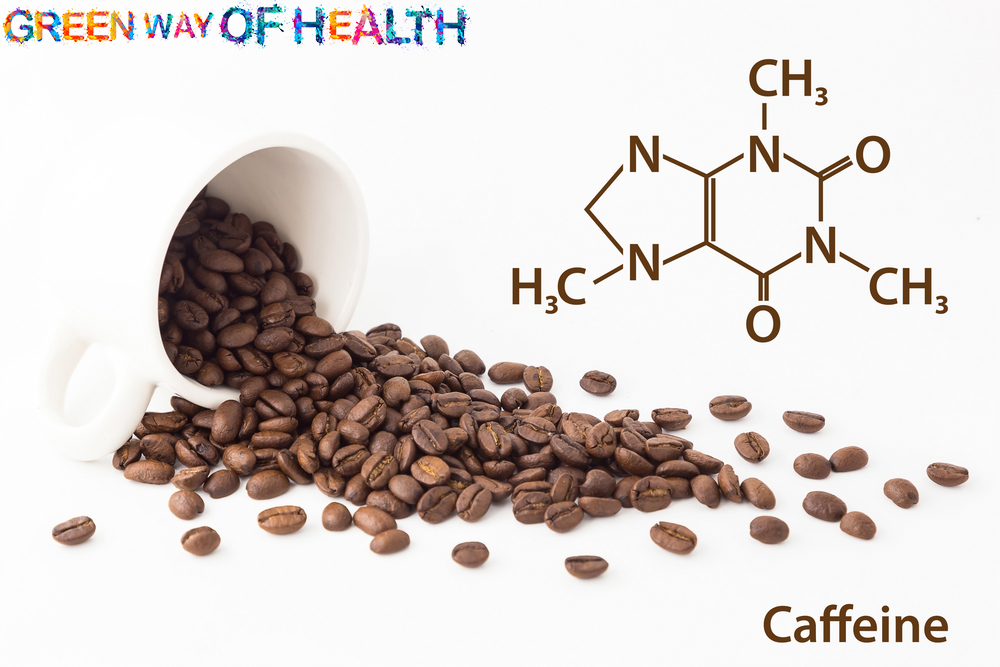
Everywhere you turn there is a new diet, new workout, or new pill promising weight loss success. Quick results can be very tempting, but they often only provide short-term success.
So, what can a person do to achieve long-term weight loss success? This can be a complex question since not one weight loss program or product is going to be fitting for every person.
This is because people with different health backgrounds such as those with diabetes, kidney disease, and/or heart disease will all have different nutrient needs.
Those with diabetes will need to limit carbohydrate intake, while those with heart disease will have to limit sodium intake. And if you have kidney disease, you may have to limit potassium, phosphorus, and sodium. So, in these cases, weight loss meal planning may be a little more complicated than just calorie counting or measuring your macros.
Those people who are known to have the greatest weight loss success share common habits. The National Weight Control Registry, established in 1994, have been collecting data from people who have lost and kept off 30 pounds or more for at least one year.
Common habits of many of these people include eating breakfast every day, weighing themselves at least once a week, watching less than ten hours of television each week, and exercising about an hour each day.
Although diet and exercise interventions can provide weight loss success for the long-term, sometimes it is not enough. Research shows that in some cases adding a weight loss medication or supplement can help people attain long-term weight loss success.
Safety concerns may be preventing some from trying a weight loss supplement. Therefore, read below for a list of safe weight loss support supplements that could help you reach your weight loss goals.
Key Supplements for Losing Weight

Caffeine
When you think of caffeine, you might think of coffee, cola, and jittery hands. However, caffeine can actually be an ally in your weight loss journey if used properly. Caffeine is a bitter substance found in coffee beans, tea leaves, kola nuts, and cacao pods.
This compound is found in food and drink products such as coffee, tea, cola drinks, and chocolate, respectively. However, some caffeine is also found in a synthetic form in some energy drinks and over-the-counter medications.
Caffeine is an effective compound when it comes to weight loss since it helps increase energy expenditure and decrease energy intake. A meta-analysis of studies showed that for every doubling in caffeine intake, the average reduction in weight, body mass index, and fat mass increased two-fold. Also, one study found that those who consumed more coffee and caffeinated drinks were more likely to maintain their weight loss.
Caffeine consumption is generally safe for most people, as long as you don’t drink too much. Experts suggest limiting caffeine intake to no more than 400 milligrams a day. Those with pre-existing heart conditions may want to limit their caffeine intake to even less since acute intake of caffeine can slightly increase blood pressure.
Also, those who are pregnant should limit caffeine intake as much as possible since it can increase risk of miscarriage and stillbirth.
So, when consumed in moderation, as long as you are not included in these at-risk groups, caffeine can be a great way to help boost your weight loss efforts. If you notice, disturbances in sleep, headaches, or anxiety, then reduce or stop your intake of caffeine and contact a qualified healthcare provider.

L-Carnitine
Derived from an amino acid, this compound has extensive research showing its effectiveness in weight loss support. Even though the body makes carnitine, it is also found in animal products like meat, poultry, seafood, and dairy products.
Inside the cells in the body, carnitine plays a role in the breakdown of fats. A study of older adults showed that L-carnitine can provide a variety of health benefits. Besides increasing muscle mass, L-carnitine revealed the ability to decrease body weight and reduce physical and mental fatigue.
Another study analyzed a variety of different studies looking at L-carnitine and weight loss effects. Study results show that those who took L-carnitine supplements lost significantly more weight compared with control groups. However, the health benefits of L-carnitine extend beyond just weight loss.
A study of women with polycystic ovary syndrome looked at the impact of L-carnitine on a variety of health markers. Study results show that after 12 weeks of L-carnitine supplementation, these women not only lost weight and inches off their waist and hips, but also had improvements in their blood glucose control.
Carnitine supplements are thought to be safe at up to 2 grams a day for one year or up to 4 grams of day for 56 days. Side effects may include nausea, vomiting, diarrhea, abdominal cramps, and fishy body odor.
Since certain antibiotics and anticonvulsant medications may interact with L-carnitine, it is important to ask your healthcare provider before starting this supplement.

Chromium
This mineral is seen often in weight loss products, so it’s no surprise that it makes the list for best weight loss support supplements. Chromium, in its trivalent (+3) form, is needed in trace amounts by humans, with adequate intakes ranging between 20 and 35 micrograms for most adults.
This mineral is found in rich amounts in broccoli, grape juice, mashed potatoes, and whole-wheat English muffins, but most other foods contain less than 2 micrograms chromium per serving. Therefore, supplementation would be beneficial for most people if these foods are not in your daily diet.
A review of current studies on chromium and weight loss show that chromium supplementation produces significant weight loss results. These were small studies, however, so these study results warrant further research on this promising mineral.
More recent studies looked at the effect of a supplement that includes cinnamon, carnosine, and chromium on weight loss. Study results show that after four months of this supplement, overweight or obese pre-diabetic subjects saw decreased fasting plasma glucose and increased fat-free mass.
These results show that chromium can provide extensive health benefits to not only those wishing to lose weight, but also to those wishing to improve their blood glucose levels. Although these effects were also seen in some research on women with polycystic ovary syndrome, longer term studies are warranted to see the full benefit chromium could have on this population.
Few serious side effects have seen in relation to chromium intake. Because of this, no Tolerable Upper Intake Level (UL) has been confirmed. However, chromium may interact with some medications, so you should ask your doctor before starting a daily regimen of this supplement.

Glutamine
This non-essential amino acid is not only an important energy source for many cells in the body but has also proved itself to be an effective weight loss support supplement. Glutamine is involved in many metabolic processes in the body, therefore is abundant throughout the body.
Animal studies show that glutamine can help improve energy balance in the body. It does this by helping to improve blood glucose levels and intestinal glucose production in the body, which contribute to maintain glucose balance. These metabolic factors are important since they typically correlate with improved ability to lose weight.
Another study looked at obese female patients and the impact of glutamine supplementation on weight loss. Study results show that body weight and waist circumference significantly declined, while metabolic markers like insulin resistance was slightly improved.
Furthermore, other research looked at the effect of glutamine on the gut microbiome as one possible reason for its success as a weight loss support supplement. Results of this study show that as compared with alanine supplementation, glutamine supplementation reduced the Firmicutes to Bacteroidetes ratio. This in turn resembled weight loss programs already seen in the literature that show that higher ratios of these bacterium were linked with obesity.
Glutamine supplementation is generally safe for most people. Some side effects may include nausea, vomiting, abdominal pain, headache, or rash, to name a few. Also, glutamine may interact with some medications, so be sure to talk to your healthcare provider before you start to take this supplement.

Green Tea
Used in China and Japan for thousands of years for medicinal purposes, green tea, derived from the Camellia sinensis plant, has shown effectiveness as a weight loss support supplement. Often consumed as a tea, green tea can also be ingested in its extract form.
The active ingredient in green tea is the catechin EGCG, or epigallocatechin gallate. Research shows that intake of EGCG can enhance exercise-induced fat oxidation.
One study looked at the effect of drinking Matcha green tea, which contains catechins and caffeine, before a walking regimen. Study results show that those who consumed the tea had lower respiratory exchange ratios and enhanced fat oxidation.
Respiratory exchange ratios (RER) are typically used to measure exercise tolerance, so a lower RER after exercise would indicate a higher exercise tolerance. Also, fat oxidation, or fat burning, would indicate greater energy utilization. Therefore, this study suggests that green tea could help optimize the health benefits of exercise.
Furthermore, another study looked at the effects of a supplement containing green tea, capsaicin, and ginger on weight loss. Study results show that those overweight women who took the co-supplements for eight weeks had beneficial effects on not only weight loss and body mass index, but also on markers of insulin metabolism and the antioxidant glutathione.
As far as safety goes, green tea is believed to be safe for most people when consumed in moderate amounts. Research shows that a safe level intake of green tea is 338 milligrams of EGCG each day as a solid bolus dose, while an observed safe level (OSL) of 704 milligrams EGCG/day may be safe for tea preparation intake. Liver problems have been observed in a small number of people who took concentrated green tea extracts.
However, for the average person, green tea could be a great way to boost antioxidants and enhance weight loss support.

Selenium
This trace element, which is nutritionally essential for humans, plays roles in thyroid metabolism, DNA synthesis, and protection from oxidative damage.
Most adults are recommended to consume about 55 micrograms selenium each day. Although it is found in foods such as Brazil nuts and yellow fish tuna in rich amounts, since these foods are not commonly consumed daily by many, then selenium supplementation could be beneficial for most people.
Research shows that selenium supplementation could help support weight loss. One study looked at the impact of selenium intake on body fat. Study results show that obese individuals had the lowest selenium intakes, and that high selenium dietary intake was linked to a beneficial body composition profile.
Besides weight loss support, selenium may also benefit metabolic health. One study looked at the impact of selenium intake on insulin resistance. Study results show that higher dietary intake of selenium was linked to lower levels of insulin resistance. However, the benefit of selenium on insulin resistance stopped at intakes above 1.6 micrograms per kilogram per day.
Selenium can interact with some medications like certain chemotherapeutic agents like cisplatin. Therefore, you should always let you doctor know about any new supplements you may be taking. However, for most people, selenium intake is generally safe in moderation with the tolerable upper intake of this supplement being 400 micrograms a day for most adults.

Whey Protein
This powdered protein supplement is best known for its presence in fitness shakes and protein bars to provide a portable source of protein when you are on the go or working out. However, this supplement has also proven itself to be an effective weight loss support supplement.
Whey protein is one of the primary proteins found in dairy products that can be added to liquids and soft foods to improve nutrient intake and/or athletic performance. Research shows that whey protein supplementation helps to improve whole body anabolism, which involves the building up of muscle mass and bone. It has also been shown to improve muscle recovery after exercise and improve body weight, total fat mass, and some heart disease risk factors in overweight and obese patients.
Also, when compared to intake of carbohydrates or a combination of carbohydrates and proteins, whey protein supplementation may increase abdominal fat loss and fat-free mass. Other related research shows that when combined with a low-calorie diet, whey protein supplementation can assist in maintaining lean body mass and enhancing fat loss.
Whey protein is generally safe for most people to consume. However, those with a dairy allergy or sensitivity should not consume whey protein as it may cause gastrointestinal discomfort, and those taking certain antibiotics or osteoporosis drugs may experience drug interactions when taking whey protein.
It is also important to note that those with lactose intolerance may be able to tolerate lower lactose formulas of whey protein such as whey protein isolate versus whey protein concentrate.
Therefore, for most people whey protein can be a nutritious, portable protein that can support weight loss. Added to smoothies, water, or other recipes, whey protein can be a delicious way to enhance your weight loss success.

Summary
No matter what your weight loss goals are, or what your health background is, a healthy diet and staying active is key to losing weight and keeping it off. However, because everyone has different health backgrounds, nutrient needs may be different. Not to mention that not all people may find weight loss success with diet and exercise alone. That is why a weight loss supplement can help support weight loss efforts for some people.
The above supplements have evidence-based research to support their effectiveness, but keep in mind that just because one supplement works well for one person, that doesn’t mean it will work for everyone. And remember that you will receive best results from any weight loss support supplement by also maintaining a healthy diet and exercise program.
When choosing a weight loss support supplement, it is important to consider safety and effectiveness. Since some weight loss supplements in the past have had serious side effects such as heart health risks, it is important to check the safety statistics on the supplements you are researching. It is also important to check and make sure no ingredients in a weight loss supplement interact with any medications or other supplements you are taking.
Once a supplement has passed the safety test, such as those listed above, then you can give it a try. It is best to stick to supplements that have evidence-based research that report its effectiveness, so you don’t waste your time and money on something that doesn’t work. And be sure that if you have any heart health issues, diabetes, or other chronic disease, that you check with a qualified healthcare provider first before starting any new weight loss support supplement.

